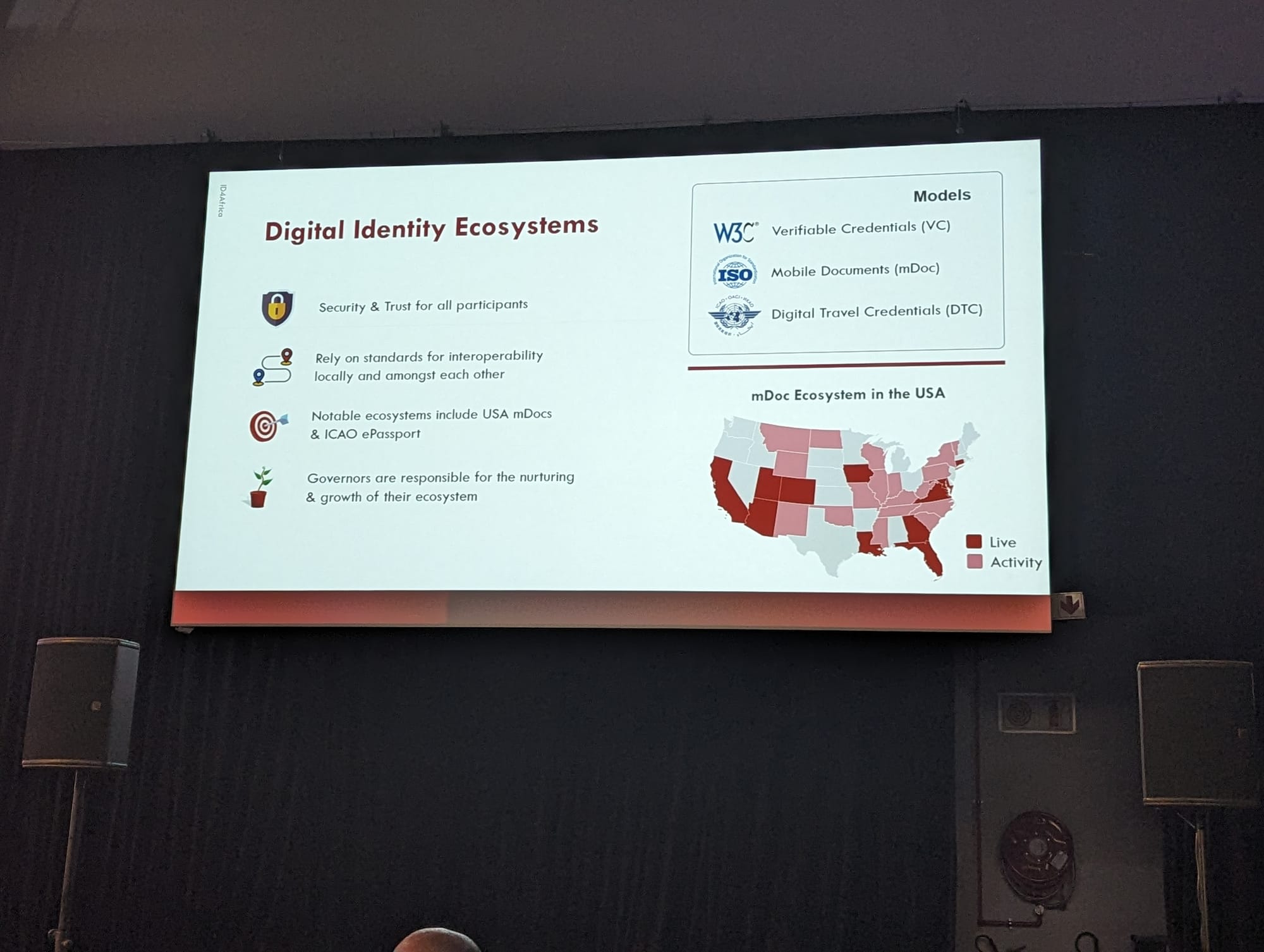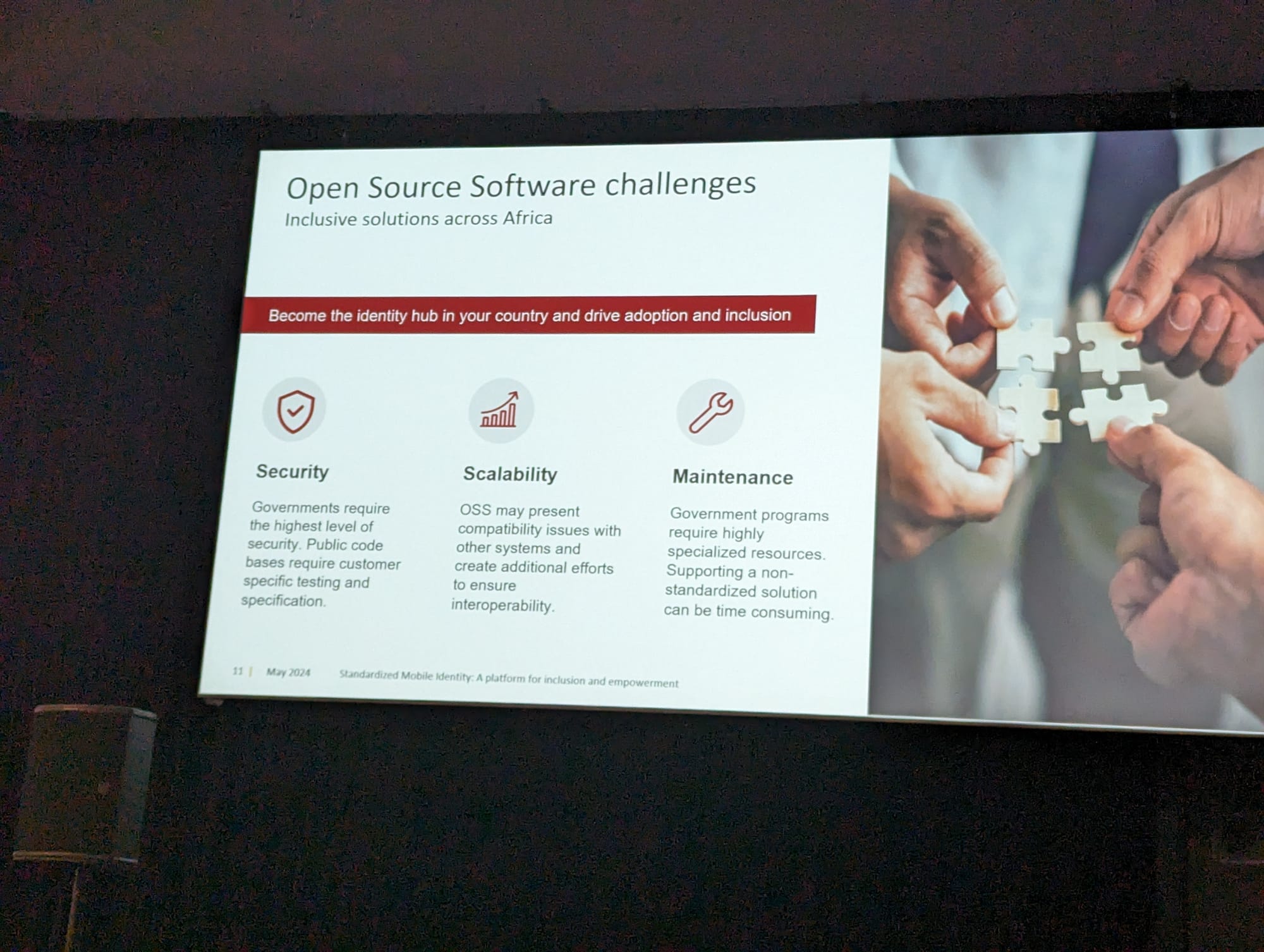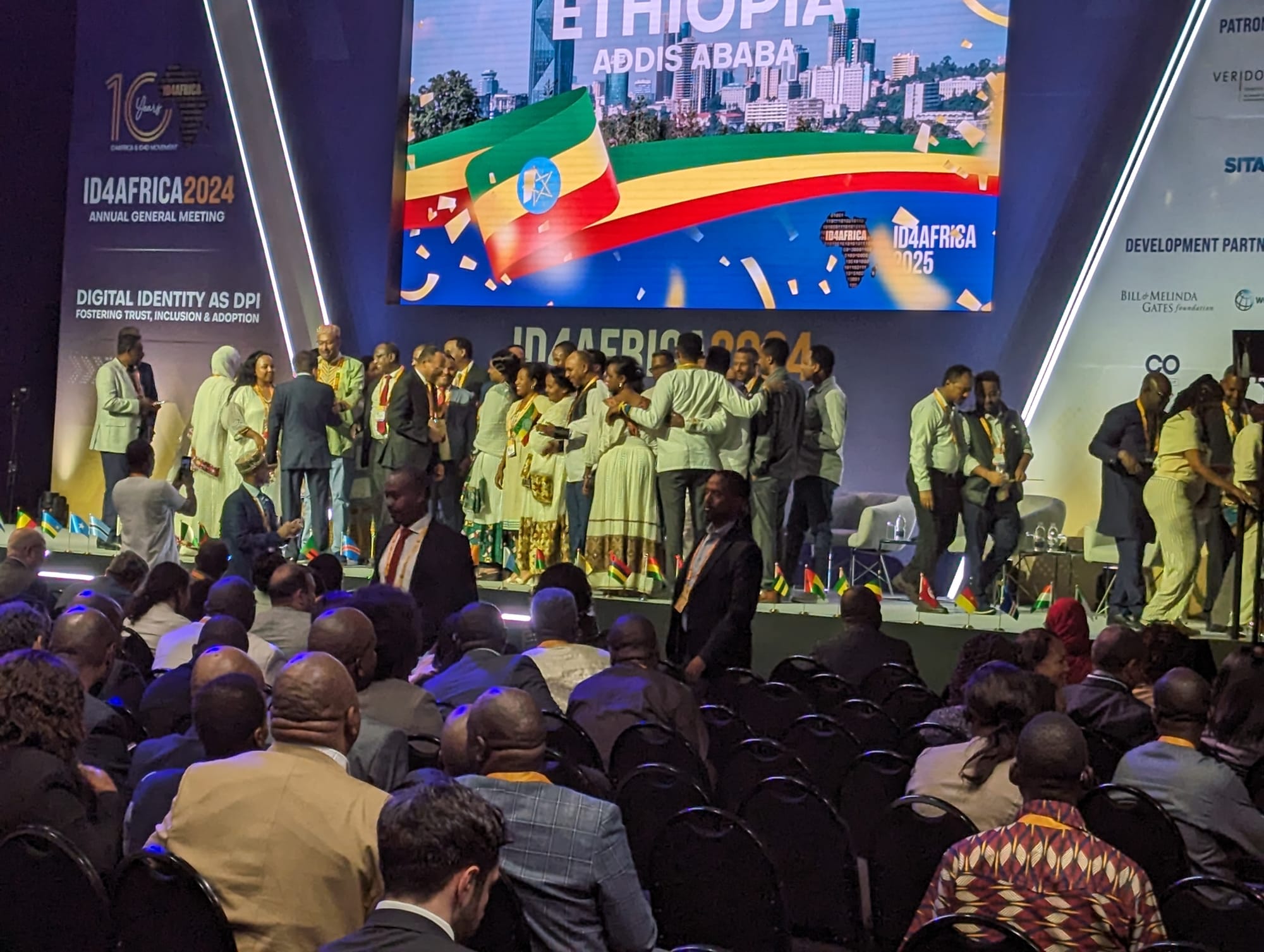Identity providers including Canadian Bank Note (CBN), Veridos (a joint venture between German security tech company Giesecke+Devrient and federal technology company Bundesdruckerei) and Thales shared digital and mobile identity innovations, developments and lessons learned from real-world deployments during Day 2 of ID4Africa in Cape Town.
The discussion concluded that Digital Identity is a powerful tool to increase inclusion and opportunity. A successful program is one everyone can use, including issuers, holders and verifiers. Convenience, security and interoperability are critical success factors.
Why build on global standards?
Trust - global standards are what enable relying parties / verifiers to trust digital IDs
Security - digital IDs are always verified electronically using standardized protocols, eliminating the need for error-prone physical inspection
Ecosystem development - building on standards enables ecosystems to benefit from network effects. For example, wallet provider like Google and Apple are working to persuade entities like Uber and Airbnb to adopt mDOC - reducing the need for ecosystem conveners to find verifiers for the ecosystem

Scalability - building on standards facilitates planning for the future and readiness to expand into new use cases. For example, the TSA (the body that manages security of air travel in the US) has started accepting mobile IDs for domestic air travel in some states where ISO mDL has been implemented
Cost reduction - avoid being locked in to a single vendor and reduce the cost of ongoing maintenance and support. Digital Identity based on the 3-party model enables holders to present credentials directly to verifiers, meaning there is no longer a need to maintain verification infrastructure, unlocking major financial savings compared to federated identity schemes, Mark Sullivan said
Benefits of participation in standards development
Canadian Bank Note (CBN) is involved in both standards development and implementation. "Digital Identity will be constantly changing for a while now. Participating in the standards process enables us to bring the latest and greatest in Digital Identity back into our solutions space", said Mark Sullivan, Director of Digital Services
Standards development gaps

- Standards integration. CBN is currently focusing on ISO mDL, as it is the only credential format that formalizes credential exchange today
- Cross-border trust. Don't reinvent what already exists. For example, the International Civil Aviation Organization (ICAO) Public Key Directory is a database holding national cryptographic keys used in authentication of e-passport information - need something similar to ensure interoperability between countries
Adoption insights
- The tools and standards are in place, but there is still hesitance to start building
- Issuing Digital Identities is not enough to ensure adoption; there must be services associated with these identities
- Governments' role is to create digital infrastructure which individual agencies and private sector orgs can leverage to make customers' lives easier and safer
- Ease of use is critical: Digital Identity needs to be as easy to use as presenting a physical ID card. CBN recommends tight integration of UX/ UI teams into the software development process; their UX team benefited from deep dive research into other apps that require trust to be established, such as mobile banking

Addis Ababa scoops ID4Africa 2025 AGM host city
The National ID Ethiopia team are celebrating in Cape Town tonight after being announced as winners of the competition to host the ID4Africa 2025 AGM!


